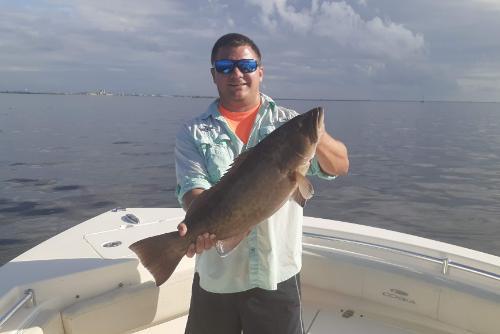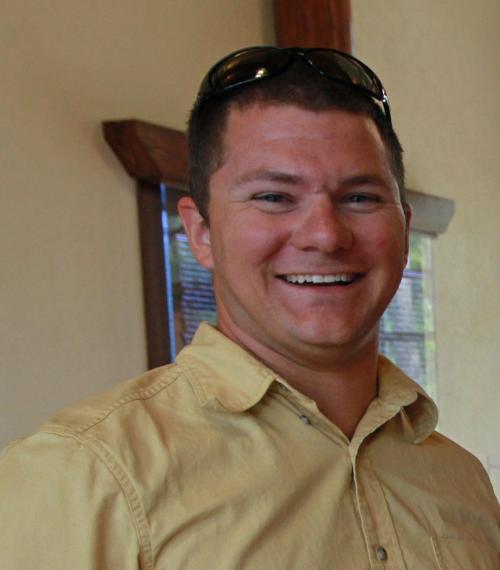Dr. Josh Patterson
Associate Professor
Dr. Josh Patterson joined the UF/IFAS School of Forest, Fisheries, and Geomatics Sciences faculty in 2014 and is currently an associate professor of restoration aquaculture. He is housed at The Florida Aquarium’s Center for Conservation in Apollo Beach, 15 minutes away from the Tropical Aquaculture Laboratory, where he maintains active collaborations with all faculty. Restoration aquaculture refers to the practice of actively enhancing populations and ecosystems using cultured aquatic organisms. Areas of research and extension in the Patterson Lab are the use of aquaculture in coral reef restoration (corals, sponges, sea urchins), restoration and protection of seagrasses, bay scallop population enhancement, and fisheries aspects of large-scale habitat restorations.
In addition to The Florida Aquarium as a primary stakeholder, Josh works directly with agencies (e.g., Florida Fish and Wildlife Conservation Commission, National Oceanic and Atmospheric Administration), non-profit organizations, and private businesses engaged in restoration aquaculture. Addressing questions about culturing organisms for aquatic restoration requires the integration of fields including engineering, genetics, physiology, and ecology. Therefore, Josh works with academic colleagues from these each of disciplines and more.


CONTACT
The Florida Aquarium's Center for Conservation
529 Estuary Shore Lane
Apollo Beach, FL 33572
joshpatterson@ufl.edu
813-419-4917
-
Education
Ph.D., Renewable Natural Resources, 2014, Louisiana State University
M.S., Aquaculture/Aquatic Sciences, 2010, Kentucky State University
B.S., Biology, 2006, George Mason University
-
Courses Taught
FAS 6238 Environmental Physiology of Fishes
This course covers topics in fish physiology, their implications, and applications. Students survey the adaptations of fishes that have allowed them to become the most species-rich vertebrate taxa. We also discuss experimental design as it pertains to investigating fish physiology, tools used in the field and laboratory, and students work in groups to design an experiment. Understanding fish biology is critical in aquaculture and fisheries management. This course provides a foundation in this topic for graduate students interested in careers in those fields.
-
Current Students
Shelby Thomas – Ph.D. candidate
Shelly Krueger – Ph.D. student
Kaitlyn O’Neil – M.S. student
Rachel Serafin – M.S. student
-
Former Students
Aaron Pilnick – Ph.D. (2022)
Joseph Henry – Ph.D. (2022)
Kailee Schulz – M.S. (2019)
Kathryn Lohr – Ph.D. (2018)
Rebecca Lucas – M.S. (2018)
Kelli O’Donnell – M.S. (2017)
